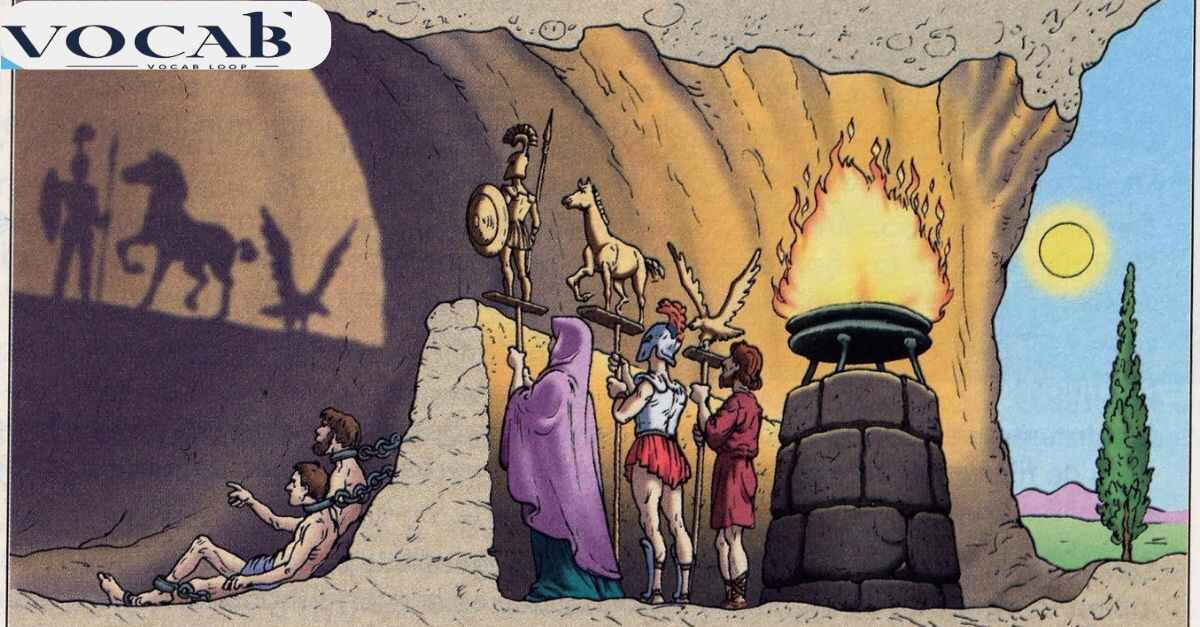Understanding the difference between allegory vs analogy can be tricky, but it’s crucial for clear communication. These two terms are often confused because they both help explain ideas or concepts, but they do so in very different ways.
Allegory is a form of storytelling that carries a hidden meaning or moral, while analogy is a direct comparison used to clarify something by showing how it’s similar to something else. In this article, we will explore the definitions, meanings, and usages of both terms to clear up any confusion and help you use them correctly.
What is the Confusion Between Allegory vs Analogy?
The confusion between allegory vs analogy is quite common because both are used to explain or compare ideas. The confusion typically arises from the fact that both allegory and analogy simplify complex ideas. However, the primary difference is in how they do so. Allegory is a form of symbolic representation, often in the form of a narrative device or story, where characters, events, or settings symbolize deeper meanings or abstract ideas.
On the other hand, analogy is an illustrative comparison used to show how two things are alike in some way, often to make something easier to understand. For example, an analogy compares one thing to another to make an unfamiliar idea clearer, while an allegory tells a symbolic story with a hidden meaning or lesson.
Is the Allegory Word Correct?
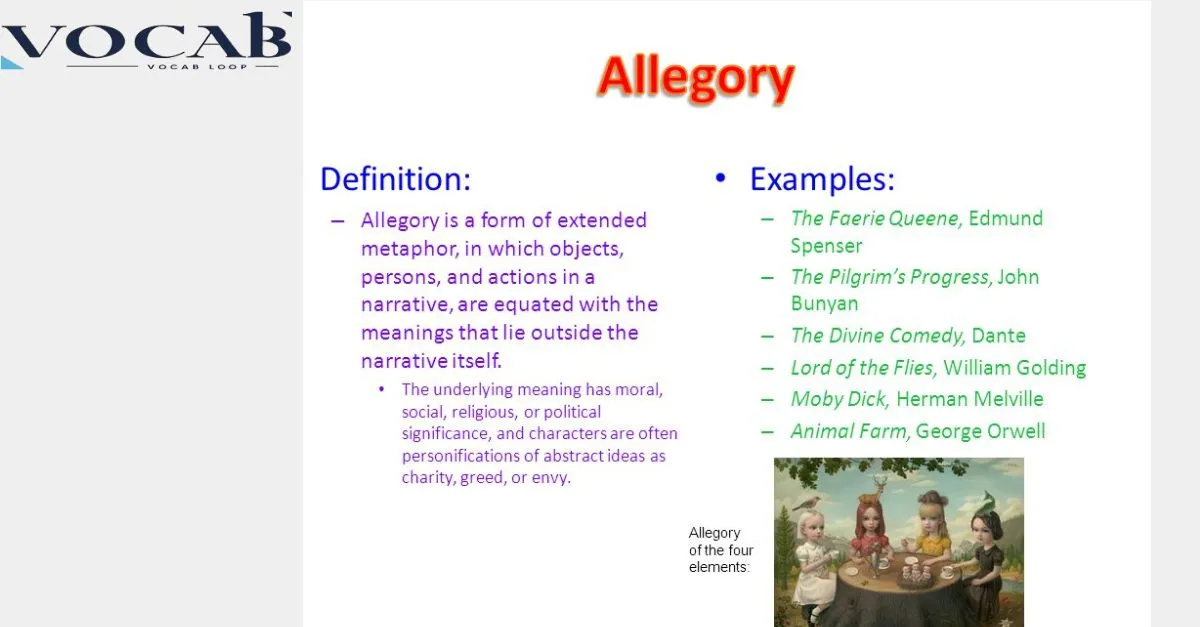
Definition:
The word allegory is used to describe a narrative device or symbolic story in which characters, events, or settings represent something deeper, like a moral lesson or an abstract idea.
The purpose of an allegory is often to convey hidden meanings, teaching lessons through indirect representation rather than explicit statements.
Meaning:
An allegory is a type of storytelling used in literature and philosophy to represent complex or abstract ideas through symbolic stories. It’s a method of conveying a hidden meaning that the reader must interpret, often with a moral lesson.
For instance, in George Orwell’s “Animal Farm”, the farm animals represent political figures and ideas, making it a classic example of allegory. The animals’ actions and the events on the farm serve as allegorical representations of real-world political events and ideologies.
Usage:
The term allegory is frequently found in literary comparisons, especially in genres like fables, parables, and moral tales. These stories often carry a message or teach a lesson about human nature, society, or ethics.
For example, Aesop’s Fables, such as “The Tortoise and the Hare”, is a well-known allegory that teaches the value of persistence over arrogance. Allegories are commonly used in allegorical literature, where the surface story has a deeper meaning to be interpreted.
Is the Analogy Word Correct?
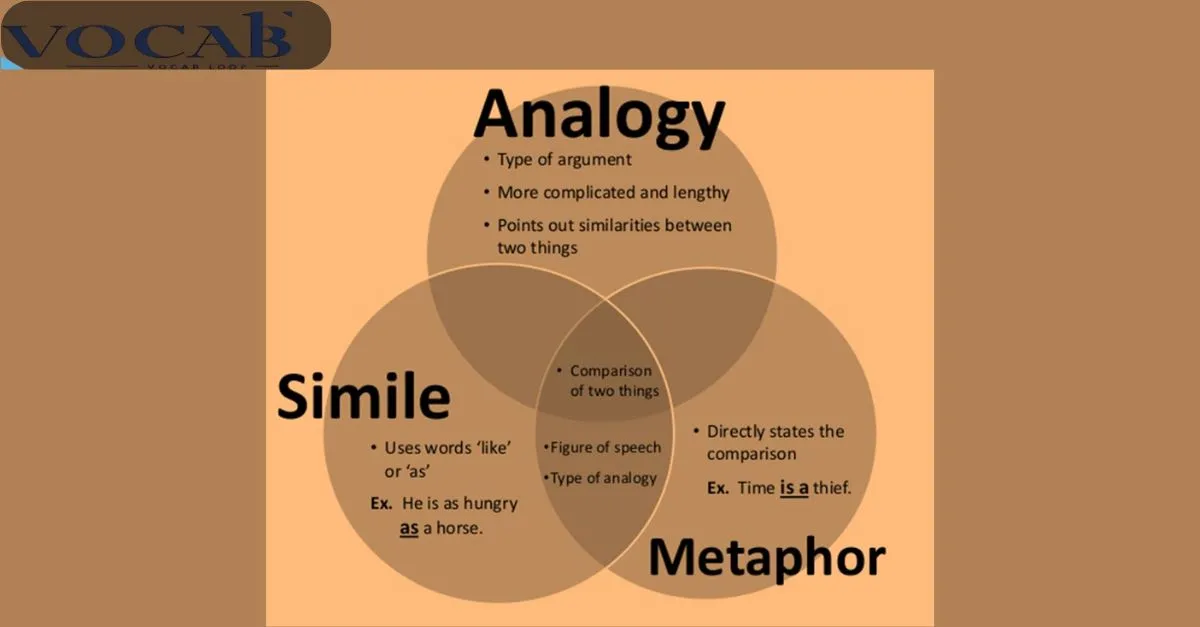
Definition:
An analogy is a comparison between two things to highlight their similarities in order to make an idea easier to understand. It helps explain complex or unfamiliar concepts by showing how they are like something familiar.
Unlike an allegory, which is a type of story, an analogy is more direct and is often used in conversation, writing, and reasoning.
Meaning:
The meaning of analogy lies in its ability to simplify or clarify ideas by comparing them to something else. For example, “The structure of an atom is like a solar system; the nucleus is the sun, and the electrons are the planets orbiting around it.”
This analogy helps people visualize the complex structure of an atom by comparing it to something familiar, like a solar system. An analogy draws parallels between two different things based on their similarities in some way, making it a useful cognitive device for explaining or reasoning.
Usage:
Analogy is widely used in speech, education, and writing to help explain things by comparing them to something else. In illustrative comparisons, an analogy highlights similarities between different things to clarify complex subjects or ideas.
For example, a teacher might use an analogy to explain a difficult concept, such as comparing the flow of electricity to water flowing through pipes. This comparison makes it easier for students to understand the idea.
Quick Summary: Allegory vs Analogy
Allegory vs Analogy revolves around their purposes and how they communicate ideas. Allegory storytelling involves a symbolic story where everything in the narrative represents a deeper meaning or moral lesson. It’s a way of conveying abstract ideas through a narrative device.
On the other hand, analogy comparison is more straightforward. An analogy explains or clarifies something by showing how it’s like something else, typically to make an unfamiliar concept easier to understand. The primary difference is that allegory involves a complete symbolic representation within a story, while analogy is a comparison tool used for explanation.
Allegory vs Analogy as Parts of Speech
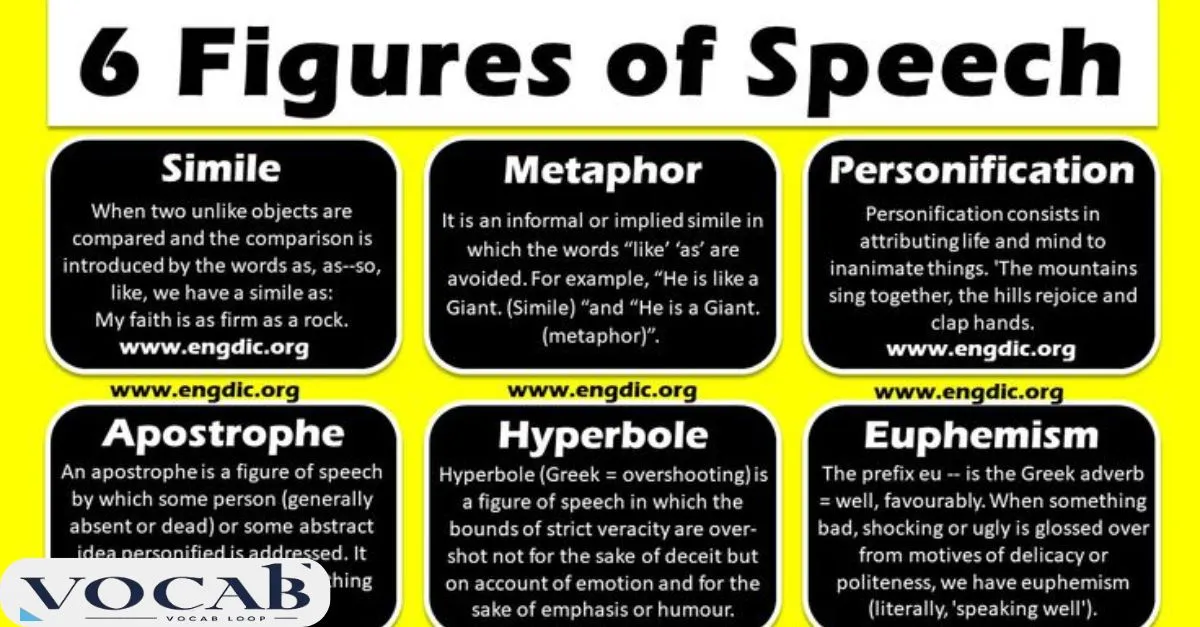
Both allegory and analogy are nouns, but they serve different functions. An allegory is a literary device that tells a symbolic story, usually to convey a lesson or hidden meaning. It often requires deeper interpretation and can be used in many genres of writing, from literary fiction to political commentary.
An analogy, however, is a cognitive device used for comparison. It helps explain or clarify something by showing how two things are similar, and is often used in both written and spoken language to help simplify complex ideas.
Pronunciation of Allegory vs Analogy
The pronunciation of allegory and analogy is straightforward, but it’s essential to get them right for clarity. Allegory is pronounced uh-LEH-goh-ree, with the emphasis on the second syllable.
Analogy is pronounced uh-NAL-uh-jee, with the emphasis on the second syllable as well. While the two words sound similar, paying attention to the correct pronunciation will help avoid confusion in speech.
Side-by-Side Comparison: Allegory vs Analogy
| Aspect | Allegory | Analogy |
| Definition | A symbolic story with a deeper meaning | A comparison between two things |
| Purpose | To convey a moral lesson or abstract idea | To clarify or explain a concept |
| Example | “Animal Farm” | “Just as a sword is to a warrior…” |
| Use in Writing | In allegorical literature or moral tales | To help explain or simplify ideas |
Which One is More Acceptable: Allegory vs Analogy?
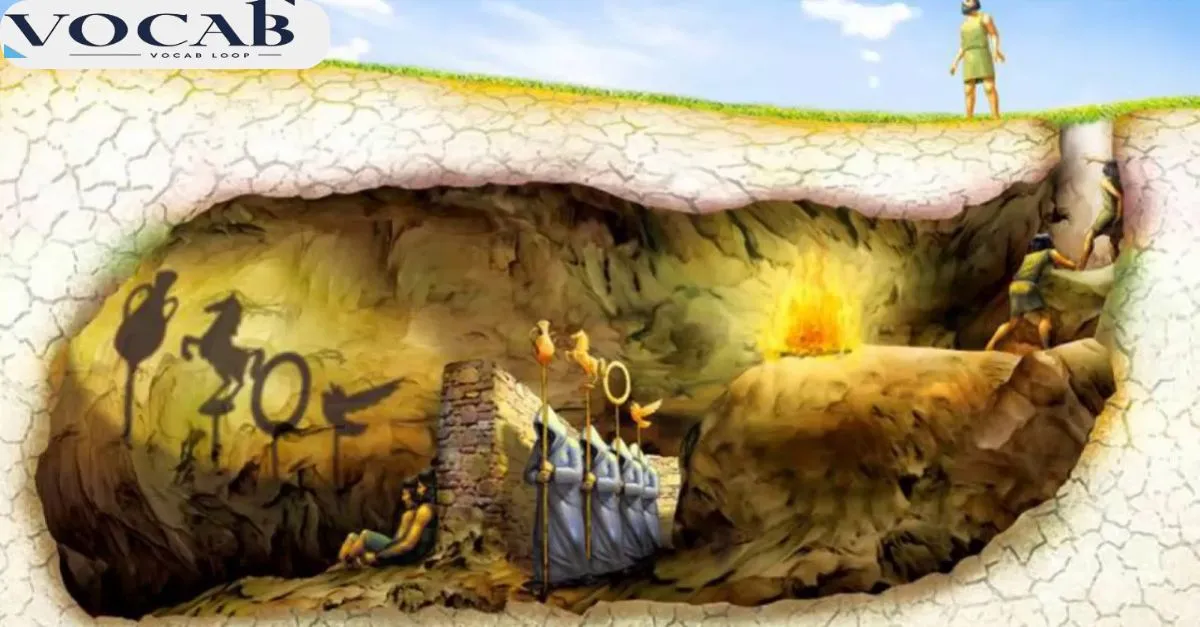
Both allegory and analogy are widely accepted in everyday language, but they serve different purposes. Allegory storytelling is more common in literary contexts, such as novels, poems, and political essays, where the narrative has deeper meanings to interpret.
On the other hand, analogy is used more often in regular conversation, teaching, and writing to explain something by comparing it to something else. While both are valuable tools for understanding and communication, they are more suitable for different situations.
Allegory in British English and American English
The use of allegory in both British English and American English remains largely the same, though certain literary traditions may emphasize it differently. In British English, allegory often appears in literary comparisons and symbolic stories.
In American English, it’s also used frequently in political writings and moral tales. Both dialects acknowledge the importance of narrative symbolism in storytelling.
Analogy in British English and American English
Analogy is used in both British English and American English, with no significant difference in meaning or usage.
However, in British English, analogy might be found more often in formal writing or academic contexts, while in American English, it’s commonly used in everyday conversation to explain ideas or clarify complex topics.
Common Mistakes: How to Avoid Them
A common mistake when using allegory and analogy is mixing them up, thinking they mean the same thing. To avoid this mistake, remember that allegory involves a symbolic representation within a story, while analogy is a direct comparison.
When trying to explain something by comparing it to something else, use analogy. If you’re telling a story that conveys a deeper meaning, use allegory.
Trick to Remember the Difference Between Allegory vs Analogy
A simple trick to remember the difference: Allegory starts with A, just like Abstract and Adventurous, both of which hint at a hidden or deeper meaning. Analogy
starts with A too, but think of it like Assisting with a comparison to help explain something clearly.
Origins of Allegory vs Analogy
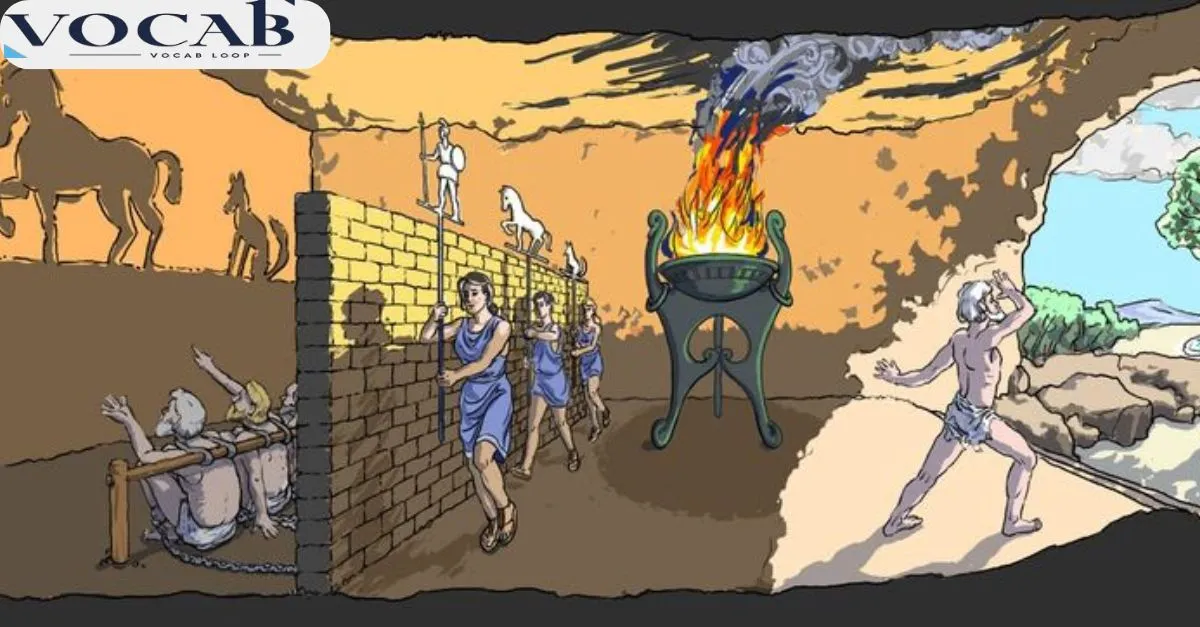
Allegory:
The word allegory comes from the Greek word allegoria, meaning “speaking otherwise.” It’s been used in literature for thousands of years, with famous examples dating back to ancient Greece and Rome.
Analogy:
The word analogy has its roots in the Greek word analogia, meaning “proportion” or “correspondence.” It was first used in the 16th century to refer to logical comparisons between things.
Synonyms of Allegory vs Analogy
Allegory:
- Fable
- Parable
- Symbolism
- Moral tale
- Narrative symbolism
- Metaphor
- Tale
- Legend
- Myth
- Story
Analogy:
- Comparison
- Similarity
- Parallel
- Correlation
- Correspondence
- Resemblance
- Metaphor
- Simile
- Relation
- Correspondence
Sentences in Daily Usage of Allegory vs Analogy
Allegory:
- The story of “The Tortoise and the Hare” is an allegory about perseverance.
- “Animal Farm” is a well-known allegory of the Russian Revolution.
- In allegory, characters are often symbolic of larger societal ideas.
- The novel is a classic example of allegorical literature.
- In allegories, the deeper meanings are hidden beneath the surface story.
Analogy:
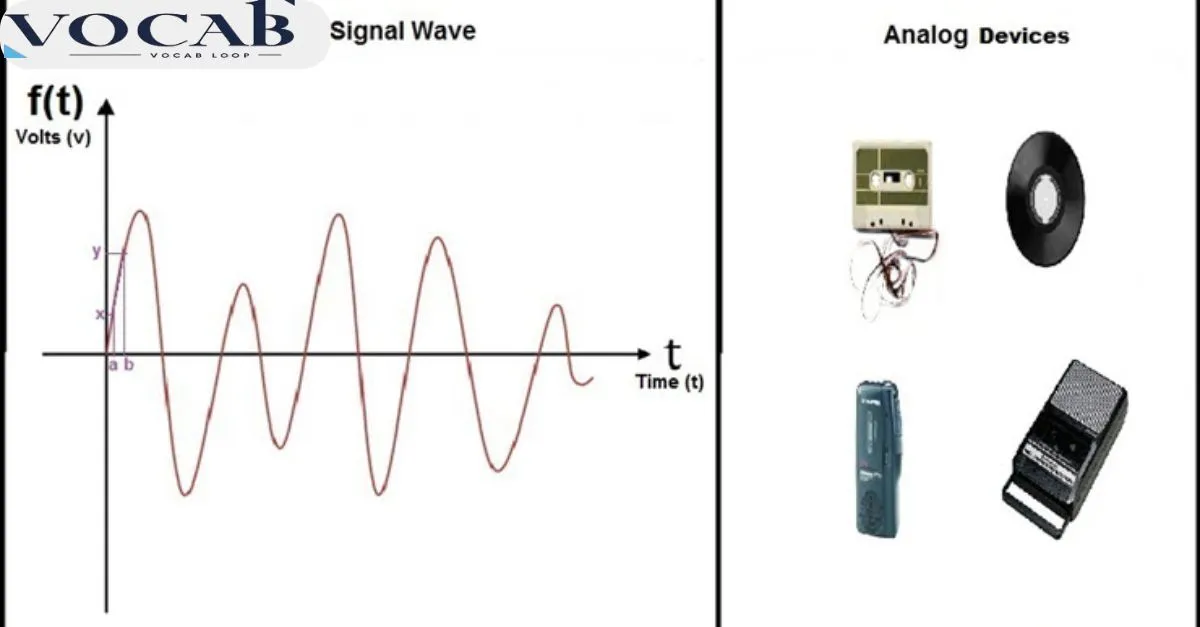
- An analogy between the human brain and a computer helps explain how we process information.
- The teacher used an analogy comparing the economy to a car engine to explain its functions.
- Making an analogy between love and a rose helps students understand the concept better.
- The scientist used an analogy to explain complex physics concepts to the students.
- An analogy between a tree’s roots and family support can show how both provide strength.
FAQs
What is the difference between an allegory and an analogy?
An allegory is a symbolic story with a deeper meaning, while an analogy is a comparison used to clarify or explain something.
Can an analogy be an allegory?
No, while both serve to explain ideas, allegories involve storytelling, and analogies focus on direct comparisons.
How do you know when to use an allegory?
Use an allegory when telling a story with a hidden meaning or moral lesson.
When is an analogy most useful?
An analogy is helpful when you need to explain or clarify something by comparing it to something familiar.
Can an analogy be used in a moral tale?
Yes, an analogy can help clarify the moral of a tale, but an allegory goes deeper, using the whole story for symbolic representation.
Conclusion
The difference between allegory vs analogy is clear when you understand their meanings and uses. An allegory is a symbolic story that teaches lessons through hidden meanings, while an analogy is a comparison tool that clarifies concepts by showing similarities. By remembering the distinctions between these two terms, you can use them correctly and enhance your writing and speaking skills. Understanding these differences is crucial for clear communication and can elevate your language.

Alex Hormozi is a seasoned blogger at Vocab Loop, known for his deep insights into language, vocabulary, and grammar. With years of experience in writing, Alex shares practical tips and effective strategies to help readers improve their linguistic skills and enhance their writing abilities.

